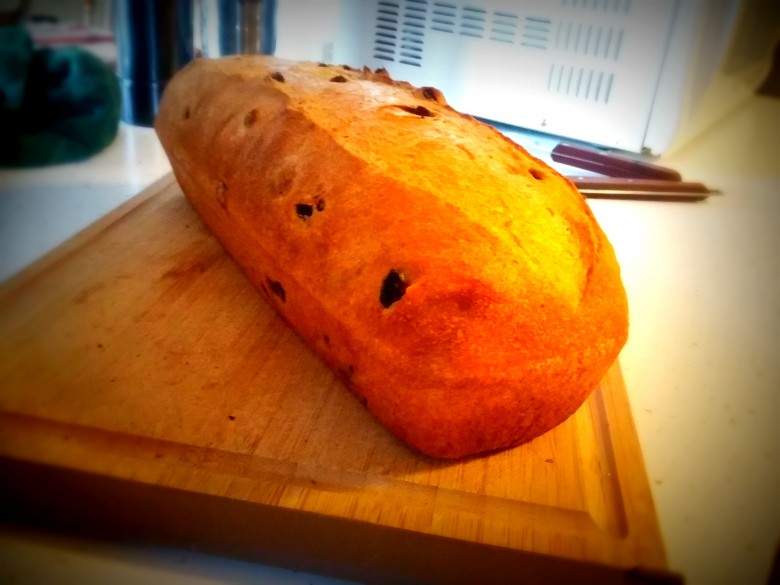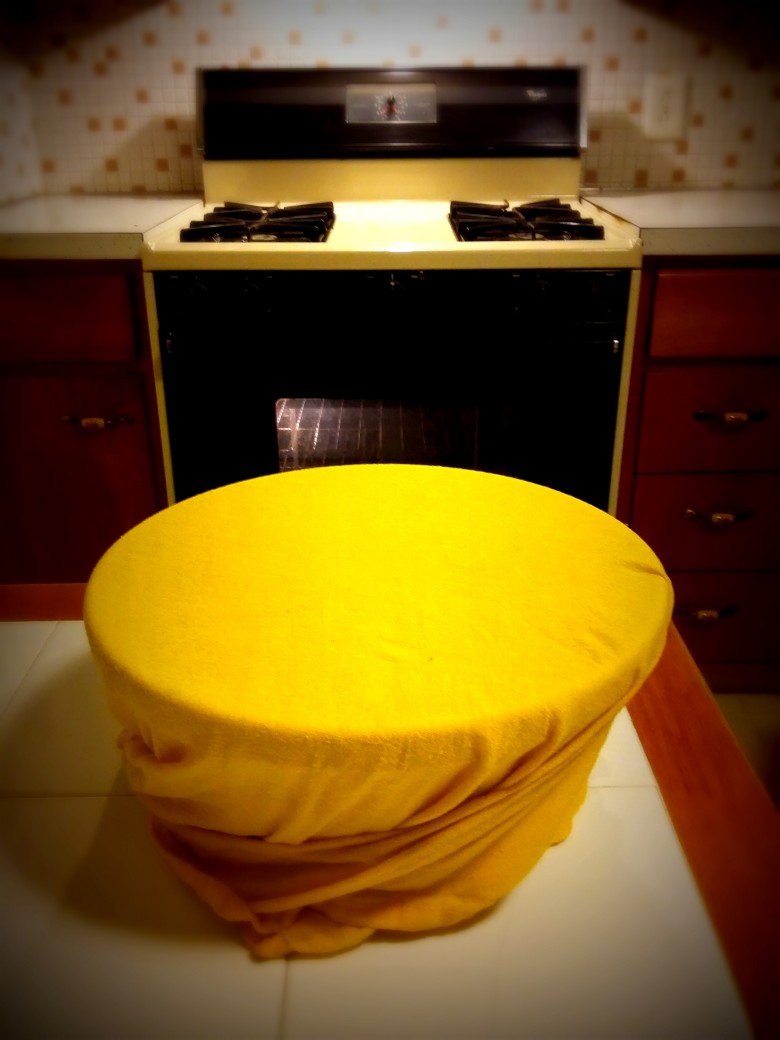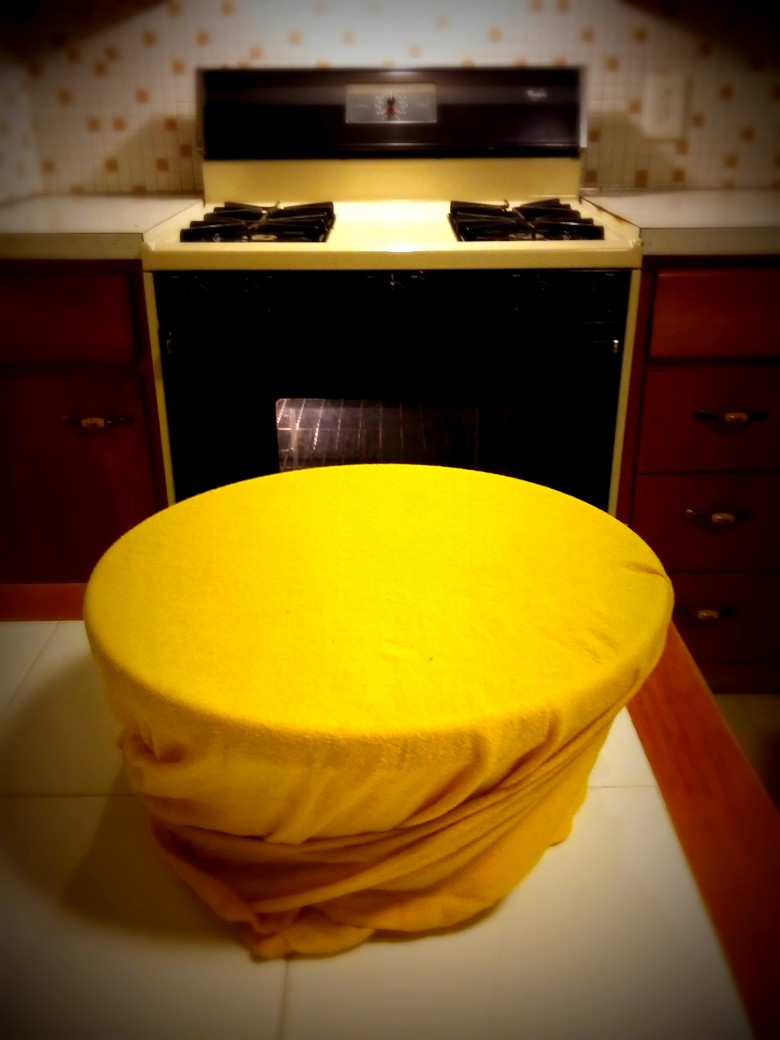In 1984, the year of my birth, a bread book was published, one that for me contained an unforgettable image. That image wasn't a literal photograph or illustration, nothing like that, but an image created in the mind's eye, using words. The words were those of Carol Flinders, co-author of the Laurel's Kitchen Bread Book, and part of that work’s introductory section titled “Always a Choice.” I read them about three years ago, sitting somewhere in my half heated apartment on Ashland Avenue. They are as follows:
"Revival of what is, yes, a subsistence skill, means you know yourself able to turn just about any flour or grain that might come your way into something that will nourish and even delight. Knowing this, you feel that much less vulnerable to circumstance. It's a subtle change, but it goes deep.
"Reinstate bread baking as a home-based activity, and you begin to change the home, too. Once you have established a regular baking pattern and the people who live with you know that on, say, Tuesday evenings and Saturday mornings there will be fresh bread, and good smells, and you there, too, manifestly enjoying yourself, there begins to be more reason for them to be there as well. The place starts to exert its own gentle tug, a strong counterforce to the thousand-and-one pulls that would draw them out and away.
"The creature comfort of a warm kitchen and people to chat with accounts only in part for this magnetic force. It's the baking itself: the artistry, the science, the occasional riddle of it. People of all ages, but particularly children, seem to draw immense satisfaction from hanging around a place where work is taken as seriously as we've come to take baking."
The image created above - one of a baker drawing people in with energy and enthusiasm, like a sun warming encircling planets - was profound. Before then, it had never occurred to me that bread, like good homemade food, could accomplish this. That it could ground a family, a group of friends, a household. It was a powerful idea.
At first I used that idea only on myself, feeling adrift after losing a job as a professional baker. At the time, I needed a distraction from what was quickly becoming a fruitless hunt for a job in journalism. So a little at a time, I worked to personalize the Laurel’s Kitchen recipe for Flemish Desem, a type of sourdough that was new to me.
It took a while to render respectable loaves, but I eventually got there, filling my apartment with good smells. Baking bread became my weekly routine, and a stabilizing force in my life.
When I finally landed a reporting job and moved away from Buffalo, I took my routine with me. Convinced that I could stabilize the lives of my coworkers, I started baking bread in my cramped third floor apartment in Potsdam, bringing a loaf to work once a week on Mondays.
At first, the response I got wasn't what I expected. People didn't finish the loaf I had brought in, and the remaining hunk of it developed mold spots, and had to be thrown away.

But eventually, after several weeks, the other reporters in the bureau started using it more, and I noticed that they would tote a slice or two of it back to their desks, and tell me what they were using it for. Sometimes it was PB&J, other times toast. One guy liked to eat it plain, and joked one day that thanks to me, he was living on bread and water. After a while, the weekly loaf acquired a name: Alan Rizzo Brand Bread, or ARBB, courtesy of one of the copy editors.
To be honest, naming it felt embarrassing, sort of like hearing the playback of my recorded voice. But it was a signal that my bread had become part of their lives. It was a familiar occurrence in their week, and they expected it to be there.
Not long ago, I came back to Western New York to look for work. While job hunting, I started volunteering as a counselor at a city shelter for runaway and homeless youth. Early on, I started thinking of baking bread there. Mostly, I just wanted to do it and see what transpired. I wasn't prepared for what happened.
No sooner had I walked in toting a cloth-covered bowl of dough, than the kids started asking what was in it. They wanted to know what I was hiding under the cloth, and what I planned to do with it. Surprisingly, when they found out it was bread dough, and that I was planning on baking, they were interested, even talkative.
The following week, the bread-making turned into more than just an interesting event. It became therapy.
On that Sunday, as I prepared to turn the dough out and shape it, one of the girls walked over to the counter where I was working. She looked drained, sad, and proceeded to tell me that her father had called her a whore earlier that day, and that her boyfriend had ended their relationship. Relatively new to counseling, I struggled to find words of encouragement to offer. But as the inevitable awkward silence started to set in, she asked if she could help me make bread.
My response was almost involuntary. Yes, I said, of course you can. And so together we split the dough in two, and shaped it into oblong loaves. We rolled them like sleeping bags, a comparison I came up with to visualize the tucking and pressing a baker must do to get the loaves right.
Later, after they had come out of the oven, the girl who had helped me, though groggy from sleeping the evening away, was curious to see the results.
The week after that I had all the kids at the shelter do a group activity on kneading as a stress reliever, and we took turns working the dough to music. It went well enough that it was the first thing on their minds when I came back this week. Just like my former coworkers, they were starting to expect the bread routine.
So we did it again, passing the dough around, and kneading out stress. This time, for a new kid with hyperactivity disorder, it was a way to focus. It was also a relief for the rest of the house, who’d had enough of him bouncing off the walls all day.

These experiences have boiled down to a simple realization: bread baking can stabilize a life. Start baking regularly and you may find that it does more, stabilizing the lives of those you bake for. They may come to appreciate your bread, if it's good. And it will be, if you work to improve it weekly. Given enough time, people may come to expect it, and expect that you, the baker, will be in a certain place at a certain time, manifestly enjoying yourself. They will be less vulnerable to the thousand-and-one distractions of this world, because you have a given them a reason to stop and experience the process and product of good, serious work.

